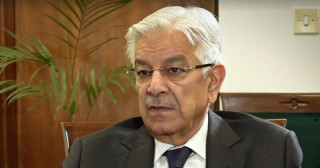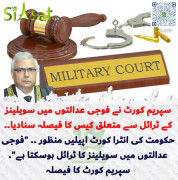May allahtallah guide us all ameen and keep shaitaan away from us, ameen
"Part of someone's being a good Muslim is leaving alone that which does not concern him." [At-Tirmidhie]
One of the reasons that pushes someone to get involved in speaking about things which does not concern him, is his desire to know that which there is no need to know or being satisfied with talking about things that have no benefit.
Excessive speech.
Another way in which the tongue is misused is by excessive speech. This involves engaging in speech that there is no need to concern oneself with, as well as being excessive in expressing oneself by speaking more than is necessary.
A shameless, vulgar and indecent tongue.
This is not only offensive, but also prohibited. It originates from being malicious, vile, wicked, and reproachful. The Prophet (peace be upon him) said:
"A believer is not a shameless person, nor one who curses, nor an obsene person nor is he indecent." [At-Tirmidhi and Al-Baihaqie].
It is prohibited to boast .
The Messenger of Allah (peace be upon him) said: "Allah has revealed to me that you all should be humble, so that no person would oppress another, and neither should there be anyone displaying pride, or boast to another person." [Muslim]
c) It is prohibited for a Muslim to abuse or blaspheme another Muslim, The Messenger (peace be upon him) said: "Abusing/blaspheming of the Muslim is evil and immoral whilst fighting him is kufr (disbelief)". [Bukharie & Muslim]
He (peace be upon him) further states: "The Muslim is he from whom other Muslims are safe from his hand and his tongue." [Muslim]
d) It is prohibited to abuse/blaspheme the dead. The Messenger (peace be upon him) said:
"Do not abuse/blaspheme the dead. [Bukharie]
e) It is prohibited to insult/blaspheme what the unbelievers worship other than Allah.
Allah, the Most High said:
"And insult not those whom they (the disbelievers) worship besides Allah lest they insult Allah wrongfully without knowledge." [Al-An'aan: 108]
It is not permissible to talk ill of the deceased Muslims or to mention their evil deeds. This is based on Bukhari's report from 'Aishah that the Prophet, peace be upon him, said: "Do not speak ill of the dead; they have seen the result of (the deeds) that they forwarded before them." Abu Daw'ud and Tirmizhi have transmitted, from Ibn ' Umar a similar hadith that the Prophet, peace be upon him, said, "Mention the good deeds of your dead and cover their evil deeds."
[FONT="]The reward of such believers will be paradise and happiness in the hereafter as well as benefits in the life of this world as long as Islamic laws and principles are applied to behaviour and manners.[/FONT]
[FONT="] [/FONT]
[FONT="]
[/FONT][FONT="]
[/FONT][FONT="]
[/FONT][FONT="][/FONT]
[FONT="]1. [/FONT][FONT="]The faithful neither hurts others nor causes them harm, and if he commits a mistake he apologizes. [/FONT][FONT="][/FONT]
[FONT="]
[/FONT][FONT="]
[/FONT][FONT="][/FONT]
[FONT="]1. [/FONT][FONT="]The hypocrite only harms and hurts others and never apologizes to them.[/FONT][FONT="][/FONT]
[FONT="]3. False Words
[/FONT][FONT="]
Speaking false words is denying what is true. Indeed, the Holy Messenger says: It is considered among the greatest sins because the liar causes harm both to people and to himself.[/FONT]
The true Muslim restrains his anger and is forgiving. He does not see any shame in doing so, rather he sees it as a good deed which will bring him closer to Allah (SWT).[FONT="][/FONT]
The Prophet said: "Among the best of you are those who have the best attitude (towards others)". [Agreed upon]
He (SAWS) also said: "Nothing will weigh more heavily in the balance of the believing servant on the Day of Resurrection than a good attitude (towards others). Verily Allah hates those who utter vile words and obscene speech." [Al-Tirmidhi, Hasan Sahih hadith]
The true Muslim has a good attitude. He is humble and soft and gentle in his speech. He does not use bad language or insult others. He is patient, gentle, forgiving, tolerant, cheerful, and sincere towards others.
"Part of someone's being a good Muslim is leaving alone that which does not concern him." [At-Tirmidhie]
One of the reasons that pushes someone to get involved in speaking about things which does not concern him, is his desire to know that which there is no need to know or being satisfied with talking about things that have no benefit.
Excessive speech.
Another way in which the tongue is misused is by excessive speech. This involves engaging in speech that there is no need to concern oneself with, as well as being excessive in expressing oneself by speaking more than is necessary.
A shameless, vulgar and indecent tongue.
This is not only offensive, but also prohibited. It originates from being malicious, vile, wicked, and reproachful. The Prophet (peace be upon him) said:
"A believer is not a shameless person, nor one who curses, nor an obsene person nor is he indecent." [At-Tirmidhi and Al-Baihaqie].
It is prohibited to boast .
The Messenger of Allah (peace be upon him) said: "Allah has revealed to me that you all should be humble, so that no person would oppress another, and neither should there be anyone displaying pride, or boast to another person." [Muslim]
c) It is prohibited for a Muslim to abuse or blaspheme another Muslim, The Messenger (peace be upon him) said: "Abusing/blaspheming of the Muslim is evil and immoral whilst fighting him is kufr (disbelief)". [Bukharie & Muslim]
He (peace be upon him) further states: "The Muslim is he from whom other Muslims are safe from his hand and his tongue." [Muslim]
d) It is prohibited to abuse/blaspheme the dead. The Messenger (peace be upon him) said:
"Do not abuse/blaspheme the dead. [Bukharie]
e) It is prohibited to insult/blaspheme what the unbelievers worship other than Allah.
Allah, the Most High said:
"And insult not those whom they (the disbelievers) worship besides Allah lest they insult Allah wrongfully without knowledge." [Al-An'aan: 108]
It is not permissible to talk ill of the deceased Muslims or to mention their evil deeds. This is based on Bukhari's report from 'Aishah that the Prophet, peace be upon him, said: "Do not speak ill of the dead; they have seen the result of (the deeds) that they forwarded before them." Abu Daw'ud and Tirmizhi have transmitted, from Ibn ' Umar a similar hadith that the Prophet, peace be upon him, said, "Mention the good deeds of your dead and cover their evil deeds."
[FONT="]The reward of such believers will be paradise and happiness in the hereafter as well as benefits in the life of this world as long as Islamic laws and principles are applied to behaviour and manners.[/FONT]
[FONT="] [/FONT]
- [FONT="]Anger, like fear, is a psychological condition, and cause of evil and aggressive actions.[/FONT][FONT="][/FONT]
- [FONT="]One who does not control his anger loses control of his mind. The enraged man cannot control his actions, and harms and hurts himself and others.[/FONT][FONT="][/FONT]
- [FONT="]A faithful should have a strong will not to become angry over everything but only when he sees evil deeds or corruption, which he should try to reform.[/FONT][FONT="][/FONT]
- [FONT="]A believer is one who forgives and tolerates people's mistakes because Allah loves those who forgive others and will reward them on the Day of Resurrection.[/FONT][FONT="][/FONT]
[FONT="]
[/FONT][FONT="]
[/FONT][FONT="]
[/FONT][FONT="][/FONT]
[FONT="]1. [/FONT][FONT="]The faithful neither hurts others nor causes them harm, and if he commits a mistake he apologizes. [/FONT][FONT="][/FONT]
[FONT="]
[/FONT][FONT="]
[/FONT][FONT="][/FONT]
[FONT="]1. [/FONT][FONT="]The hypocrite only harms and hurts others and never apologizes to them.[/FONT][FONT="][/FONT]
[FONT="]3. False Words
[/FONT][FONT="]
Speaking false words is denying what is true. Indeed, the Holy Messenger
The true Muslim restrains his anger and is forgiving. He does not see any shame in doing so, rather he sees it as a good deed which will bring him closer to Allah (SWT).[FONT="][/FONT]
The Prophet said: "Among the best of you are those who have the best attitude (towards others)". [Agreed upon]
He (SAWS) also said: "Nothing will weigh more heavily in the balance of the believing servant on the Day of Resurrection than a good attitude (towards others). Verily Allah hates those who utter vile words and obscene speech." [Al-Tirmidhi, Hasan Sahih hadith]
The true Muslim has a good attitude. He is humble and soft and gentle in his speech. He does not use bad language or insult others. He is patient, gentle, forgiving, tolerant, cheerful, and sincere towards others.
Last edited:






































